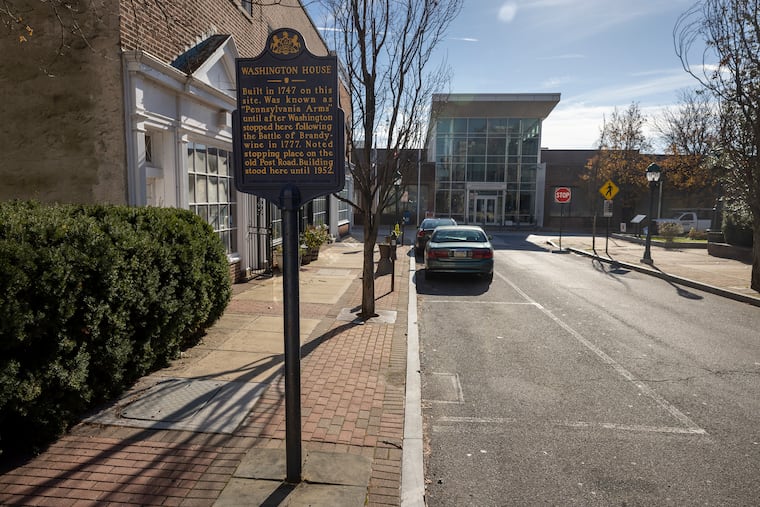Chester’s plans to rescue the city from bankruptcy by selling water systems is meeting resistance
The receiver's office says it has been in talks with two of the three entities that would be involved.

The receiver’s plan to throw a financial lifeline to the bankrupt City of Chester and its distressed pension funds by selling off water assets evidently will be contending with a dam of resistance.
The Chester Water Authority, which serves 34 towns in Chester and Delaware County and would be one of the three entities involved, will fight the proposal, said its attorney, Francis J. Catania.
In a U.S. Bankruptcy Court filing Monday, the receiver’s office said that under the plan, the authority and its nine-member board’s “legal existence will be terminated.”
Catania argued that the receiver’s office couldn’t sell the assets because it doesn’t own them. “They claim all sorts of power, all of which has been false,” he said. “It’s just nonsense.”
Vijay Kapoor, the receiver’s chief of staff, pointed to a 2021 Commonwealth Court majority decision that stated that the city had “unfettered power to transfer the authority and all its assets.” The decision is under appeal in the state Supreme Court.
In a statement, Kapoor said the sale would be “the only way to provide the revenue needed to prevent drastic and unacceptable cuts to pension benefits and city services.”
He said Wednesday that the receiver’s office has been negotiating with the water authority and the Delaware County Regional Water Quality Control Authority (DELCORA).
As for the third party that would be involved, the Stormwater Authority of Chester, executive manager Horace Strand said that the receiver’s office had refused to meet with him or his representatives. He said the receiver was using Bankruptcy Court as “a bully pulpit.”
In a presentation at a bankruptcy committee meeting Tuesday, Kapoor said that “the receiver believes that the best outcome is a consensual resolution,” but that “the receiver needs to take this step to keep the process moving.”
What the Chester bankruptcy receiver plans to do
Noting that the city has been under state oversight for decades, Catania said the receiver in effect wanted water customers to make up for the state’s failures. State Rep. John Lawrence (R., Chester) called on Gov. Josh Shapiro to block the proposed sale to an as-yet undetermined buyer.
The city entered the state’s “distressed” status in 1995. During the COVID pandemic in 2020, Gov. Tom Wolf placed the city in receivership. The receiver, Michael Doweary, took the city into bankruptcy in 2022 after it had missed several years of pension payments and had accumulated a shortfall approaching $50 million.
Among the nation’s 35,000-plus municipalities, only about 30 have filed for bankruptcy in the 90 years that Congress has offered the option.
Negotiations with creditors, primarily pension interests, have continued.
To speed up the process of getting out of bankruptcy, the receiver’s office said it would seek “requests for proposals” for applicants to buy, manage, and operate the water and stormwater authorities and the city’s stake in DELCORA — which serves 46 towns in Delaware and Chester Counties — “with the requirement that it be publicly owned.”
Mayor Stefan Roots strongly supports the plan.
The monetization plan involves ‘a lot of money’
While declining to say just how much, Kapoor said, “We’re potentially talking about a lot of money” if the plan proceeds.
In the last five years, Aqua Pennsylvania has offered $410 million for the water authority and $276 million for DELCORA.
Chester likely would receive significant upfront fees, and “the city’s goal is to secure guaranteed annual payments,” the receiver’s office said.
Doweary said the plan would “minimize the impact on ratepayers and provide a regional solution to stormwater management.”
Chester homeowners pay separate bills to the three water entities for an average of about $1,000 annually.
The receiver’s argument for monetizing the water assets
During Tuesday’s presentation, Kapoor said that the city’s pensions are underfunded by about $40 million, most of that related to police pensions, which are only about 7% funded.
Chester’s pension and health-care costs are “unsustainable,” and the city doesn’t have the tax base to pay for them and provide basic city services, he said.
Chester’s population, now about 34,000, and tax base have shrunk dramatically in the last 70 years. In the 2024 budget, real estate and wage taxes were projected to cover just about a third of the budget. Close to 20% of the revenue was to come from Harrah’s Philadelphia Casino and Racetrack and an incinerator plant.
The projected $70.6 million in expenditures exceeded revenues by $2 million.
“We’ve got potentially a fiscal cliff in 2026,” Kapoor said.
What happens next?
Catania, the water authority attorney, said he had not yet decided what action he would take.
The stormwater authority’s Strand said that his attorney was reviewing the receiver’s Bankruptcy Court filing.
This may take a while.